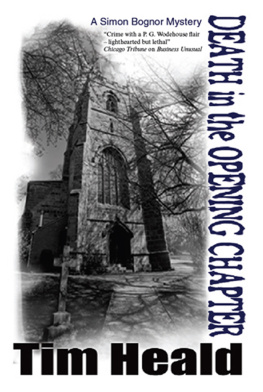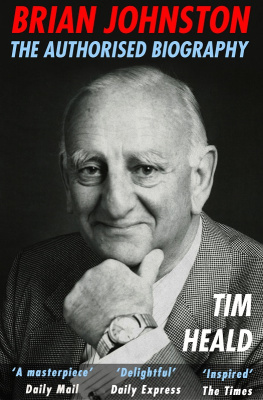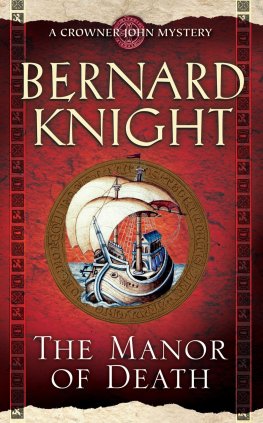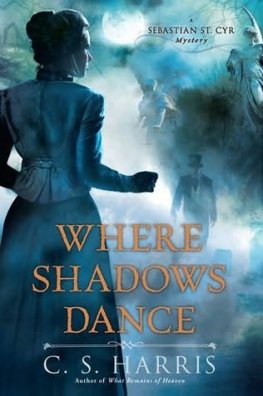Recent Fiction Titles from Tim Heald
The Simon Bognor Series
UNBECOMING HABITS
BLUE BLOOD WILL OUT
DEADLINE
LET SLEEPING DOGS LIE
JUST DESSERTS
MURDER AT MOOSE JAW
MASTERSTROKE
RED HERRINGS
BROUGHT TO BOOK
BUSINESS UNUSUAL
DEATH IN THE OPENING CHAPTER *
The Doctor Tudor Cornwall Series
DEATH AND THE VISITING FELLOW
DEATH AND THE DURBERVILLES
A DEATH ON THE OCEAN WAVE
*available from Severn House
DEATH IN THE OPENING CHAPTER
Tim Heald
This eBook is copyright material and must not be copied, reproduced, transferred, distributed, leased, licensed or publicly performed or used in any way except as specifically permitted in writing by the publishers, as allowed under the terms and conditions under which it was purchased or as strictly permitted by applicable copyright law. Any unauthorised distribution or use of this text may be a direct infringement of the author's and publisher's rights and those responsible may be liable in law accordingly.
First world edition published 2011
in Great Britain and the USA by
Crme de la Crime, an imprint of
SEVERN HOUSE PUBLISHERS LTD of
915 High Street, Sutton, Surrey, England, SM1 1DF.
Copyright 2011 by Tim Heald.
All rights reserved.
The moral right of the author has been asserted.
British Library Cataloguing in Publication Data
Heald, Tim.
Death in the opening chapter. (Simon Bognor mysteries)
1. Bognor, Simon (Fictitious character) Fiction.
2. Government investigators Fiction. 3. Clergy Crimes against Fiction. 4. Detective and mystery stories.
I. Title II. Series
823.9'14-dc22
ISBN-13: 978-1-78010-064-7 (ePub)
ISBN-13: 978-1-78029-002-7 (cased)
ISBN-13: 978-1-78029-502-2 (trade paper)
Except where actual historical events and characters are being described for the storyline of this novel, all situations in this publication are fictitious and any resemblance to living persons is purely coincidental.
This ebook produced by
Palimpsest Book Production Limited,
Falkirk, Stirlingshire, Scotland.
For Kits and Hacker, who provided the original idea,
and for Graeme and Pip, Robyn and David,
who provided peace and quiet, not to mention
inspirational views.
ONE
T he Reverend Sebastian Fludd unlocked the door to his church, walked up the aisle, crossed himself, knelt briefly in prayer and then sat down in one of the front pews. Such was his wont as he began to think about tomorrows sermon. It was one of the most important of the year less so than Christmas or Easter, but more significant than any other for it heralded the annual Flanagan Fludd Literary Festival, which had been held for a decade in the pretty little seaside town of Mallborne.
The Reverend Sebastian was descended, vaguely, from the eponymous festival dedicatee and his presence as vicar of the small but perfectly formed thirteenth-century Saint Teaths church owed something to this and to the presence in the decaying manor house of Sir Branwell Fludd, the fourteenth baronet, who, being the great grandson of the poet, pageant-contriver and pantomime-composer after whom the festival was named, was even more closely connected with the festival than his distant cousin, the rector. His living was, in effect, under Sir Branwells control. However, the bishop, something of a radical (though described by some as a closet conservative), was inclined to dispute this feudal relic.
Much of Mallborne was still under the control of Sir Branwell and Lady Fludd, for the town had, on the whole, resisted New Labour and such novel concepts as democracy and progress. The Fludd cousins and the rest of the community behaved as if nothing of any great significance had happened in Mallborne for the last thousand or so years. In this, they might have seemed unfashionable, but they were also, more or less, correct.
Sebastian opened his Bible and read, sotto voce, In the beginning was the word.
The Gospel according to St John, Chapter One, beginning at the first verse. Just the ticket for a literary festival. And the word was God. And the word was with God. Strange that he had never used this text before. He believed that the King James Bible was one of the great works of English literature, that the words in it were beautiful and beautifully arranged. They were, in a very real sense, the words of God and this would be the theme of his talk from the pulpit this Sunday. God knows what the words meant but that was not unusual when it came to the Bible, or anything else. Perhaps that would be his theme: an exasperated shrug and spreading of the hands, together with a sighed, God knows!
Faith sat lightly on the shoulders of Gods servant Sebastian Fludd. In fact, it sat so lightly that its gossamer-like ethereality was often non-existent. He was more of a lugubrious agnostic than a cheerful atheist, but he could not, in all conscience, be described as a conventional believer. He had only taken orders because as the younger son of a younger son it had seemed the right, indeed the only, thing to do.
Truth to tell, he should have done almost anything else, and in a more up-to-date family he might have done so. The Fludd family, however, had been sending their problem children into the church since the Reformation and beyond. There were uncommitted Reverend Fludds littering the footnotes of English history virtually since English history first began. True, there had been the occasional committed firebrand Fludds, and one had even been burned at the stake for his convictions. On the whole, however, the ecclesiastical Fludds belonged to the Laodicean wing of the church, being neither hot nor cold, and worthy, therefore, of being spewed out by the likes of St Paul, who was made, it went without saying, of sterner stuff.
The Reverend Sebastian was feeling a bit spewed out, himself, that night as he contemplated the Gospel according to St John. Sir Branwell had given him a wigging; Mrs Fludd had done the same and there had been two anonymous letters which were unsettling. And he had had a run-in with the chef-proprietor of the pub the cook with the funny foreign name. He felt beleaguered. It was no fun being a vicar these days, particularly if you had trouble believing in God, let alone the ludicrous beliefs that went with Him. The Reverend Sebastian had much sympathy with same-sex marriage and the ordination of women as bishops. These relatively progressive views did not find sympathy with either Lady Fludd nor Sir Branwell. Nor was he entirely sure of his Bishop, Ebenezer, nor indeed his wife, Dorcas. Luckily, the Reverend Sebastian did not hold his beliefs very strongly, not being given to strong beliefs about anything much. Which was, perhaps, part of his problem and why, in middle age, he was rector of St Teaths, Mallborne, and likely to remain so for the foreseeable future.
He frowned over the words and concentrated on the Good Book so hard that he did not hear the click of the church door, which he had left unlocked, or the soft pad of footsteps up the aisle.
He enjoyed the literary festival, even though he was sceptical about his ancestor who struck him as a Victorian ranter and charlatan. He had a long white beard like an old-fashioned version of God the Father Almighty and his poetry quite definitely did not stand the test of time, being, in his opinion, ponderous, pompous and unduly orotund. The rhymes, which were frequent, were obvious, as were the sentiments. Never mind, the festival was fun and alliterative. He was sorry they were not having Salman Rushdie whose humour he much enjoyed. For some reason Lady Fludd, who was a sort of de facto literary director of the festival, did not find Rushdie funny, so he went uninvited, which the Reverend Sebastian thought rather a pity.









![Simon Brett [Simon Brett] - Mrs. Pargeter’s Pound of Flesh](/uploads/posts/book/142156/thumbs/simon-brett-simon-brett-mrs-pargeter-s-pound.jpg)
![Simon Brett [Simon Brett] - Mrs. Pargeter’s Plot](/uploads/posts/book/142154/thumbs/simon-brett-simon-brett-mrs-pargeter-s-plot.jpg)
![Simon Brett [Simon Brett] - Mrs. Pargeter’s Package](/uploads/posts/book/142153/thumbs/simon-brett-simon-brett-mrs-pargeter-s.jpg)


